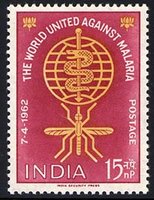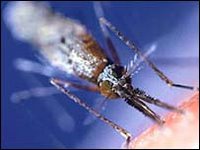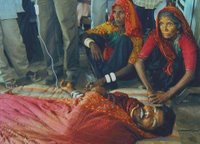Thursday, September 21, 2006
Data Has a Face? / Detachment

![]() Epidemiology is somewhat of a new field, so definitions of the field itself, quite like the many terms that fall under it, vary widely. One definition from an unknown source (e.g. the depths of my own imagination) is: the collection and analysis of information concerning the distribution and determinants of disease in populations.
Epidemiology is somewhat of a new field, so definitions of the field itself, quite like the many terms that fall under it, vary widely. One definition from an unknown source (e.g. the depths of my own imagination) is: the collection and analysis of information concerning the distribution and determinants of disease in populations.
When someone in the U.S. initiates a conversation with that oh-so-American inquiry of "What do you do?", I often simply reply that I am an epidemiologist. The most common response is a furrowing of the brow or the question as to whether or not I study skin. If we both choose to pursue the topic further, it is usually not too difficult to convey the concept of health-related data collection, organization, and analysis.
In India, I find the potential for a disconnect to be much greater. Due to limited Hindi and/or English skills, the typical response is a rolled up pant leg or shirt sleeve to expose a previously unfathomable, oft-bearded growth on the surface of the skin. I never utter the word 'epidemiology' in my description, so there is no comparable employment of the 'Latin root' trick. I think it begs more to my inability to provide any valid, understandable descriptors that paint me as anything other than a physician.
![]() I remember in high school, and again during the beginning of my undergraduate studies at the University of Michigan, the desire I had to be a physician. Looking back (I mean now, here, from this particular juncture in time, able to be utterly objective and overly courageous thanks to the miracle of modern narrative technique), I see my folly quite clearly. It was never a tangible desire, but rather just an ideal or, even better yet, just a word. It was a standard, a paradigm to measure myself against, something that served, albeit unsuccessfully, as a means of motivation.
I remember in high school, and again during the beginning of my undergraduate studies at the University of Michigan, the desire I had to be a physician. Looking back (I mean now, here, from this particular juncture in time, able to be utterly objective and overly courageous thanks to the miracle of modern narrative technique), I see my folly quite clearly. It was never a tangible desire, but rather just an ideal or, even better yet, just a word. It was a standard, a paradigm to measure myself against, something that served, albeit unsuccessfully, as a means of motivation.
Yet now -- ten years removed from my aforementioned folly -- more than at any other point in my life, I feel that desire more genuinely. Hindsight aside, I don't regret any decisions I have made to place me where I am today. I enjoy the life that I lead now and, more importantly, I am pleased with who I have become. I don't feel as though something in my life has gone unfulfilled. I think it merely a product of moments like this, spending hours staring at data on a computer screen and wishing that numbers had a face.
You can look at morbidity and mortality figures and say that they correspond to real people with real problems, real lives, and real faces. Perhaps it is my way of processing things, but I need to see the affected people to help me bridge the disconnect, for the numbers to shed their inanimate status and transform into real life flesh and blood.
![]() I have not a clue what attracted me to medicine in my youth, but I see now why I find it appealing. Simple human contact is one reason, but I think more importantly still, is the ability to interact face-to-face with the people that you strive to assist. Public health can provide you with that, but the possibility of detachment is real and, to me, a bit frightening. Regardless of whether or not you work in the field of business, health, or whatever, having your client in front of you allows you to minimize that likelihood.
I have not a clue what attracted me to medicine in my youth, but I see now why I find it appealing. Simple human contact is one reason, but I think more importantly still, is the ability to interact face-to-face with the people that you strive to assist. Public health can provide you with that, but the possibility of detachment is real and, to me, a bit frightening. Regardless of whether or not you work in the field of business, health, or whatever, having your client in front of you allows you to minimize that likelihood.
I honestly know -- and know well -- that I do not want to invest the amount of time and energy required for me to become a doctor. I also recognize that I have a difficult time laboring at an occupation that does not foster contact with the people that my work aims to benefit.
Show me the faces of some sick people once in a while and my work as a public health professional will seem a lot more real.
(Update: October 2nd to Ranchi. No more data analysis = Real live people)
.jpg)
.jpg)


No comments yet